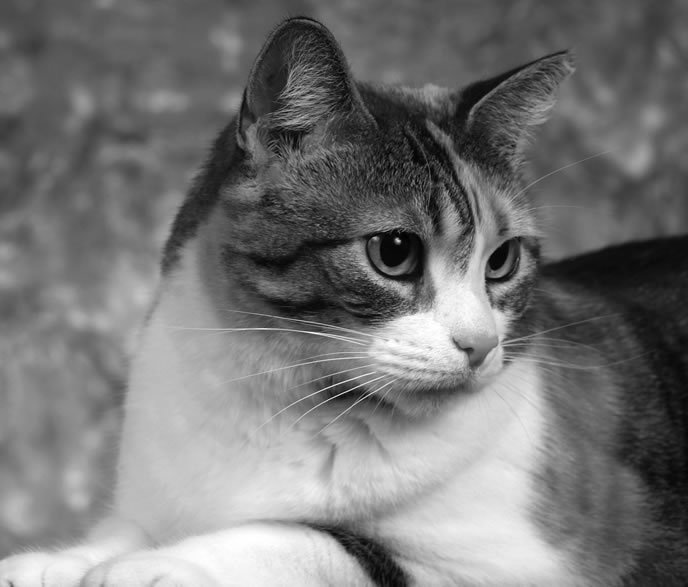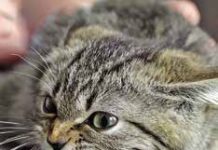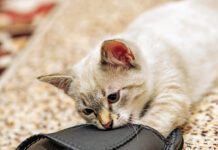Q. Ive been feeding a neutered male outdoor cat for the past few weeks, and he is aggressively friendly. On two occasions, he attacked my legs with his claws when I was walking to his food bowl to fill it. I began taking a spray bottle with me and squirted him when he got too close but stopped that because I thought it would only confuse him. Lately, he has not attacked me but is still very persistent in rubbing against me to the point of almost causing me to trip. Is there anything I can do to calm him down before mealtime?

A. First, thank you very much for your concern for this kittys well-being. It is wonderful that you care enough to feed him and to work toward figuring out a solution to this issue. As you move forward in working with him, however, it is very important that you are careful about your own well-being. Without knowing the health and vaccination status of this kitty, it is possible that if he bites or scratches you, you can come down with a problem of your own.
These problems may range from Bartonella (a bacteria) infection from scratches (called cat-scratch fever) to potentially life-threatening rabies infection from bites, so it is very important that you safeguard your own health as you work with him. Of course, if you have already been bitten or scratched, it would be wise to consult with a physician about how best to manage the situation.
Aggression in general is a complex behavioral problem, and there are many forms of aggression in cats, ranging from fear aggression to predatory aggression to pain-induced aggression. The best means of managing these different types varies with each cause. With respect to this kittys behavior, it is difficult to comment specifically without seeing in person (or in kitty), but it sounds like what you are describing may be a form of play aggression.
Cats engaging in play aggression often demonstrate characteristic body postures, such as tail-lashing and flattening of the ears against the head, followed by hiding/stalking and biting of the hands and feet of people in their vicinity. This behavior is most commonly seen in kittens but may also be seen in young adult cats.
Management of cats engaging in inappropriate play aggression usually involves the use of techniques to distract/deter the offending kitty without making physical contact with him immediately upon the onset of the unwanted behavior. Techniques including the use of a blast from a compressed air canister, shaking a can full of coins or tossing ping-pong balls or balls of aluminum foil to distract an aggressive kitty are often helpful. The use of a spray bottle may also be successful, depending upon the cat. The important point here is that, whatever techniques you choose to use, do not physically reprimand this kitty (i.e., by tapping him on the nose or slapping him), as he may perceive this as a threat and may become more aggressive.
In addition, it may be helpful to refrain from feeding this kitty while he is engaging in this behavior, as he may perceive this as a reward for acting this way. Perhaps consider putting the food bowl back in the house if he acts this way and wait until he is calm before providing him with a reward for this calm behavior by feeding him.
Of course, it is difficult to rule out other potential causes of this behavior from a distance, and you may consider consultation with a veterinary behaviorist if these techniques are not effective. Figuring out the best means of addressing this type of behavior can be complicated, in your case further complicated by the fact that this is an outdoor cat, but with patience and appropriate guidance, most of these types of problems can be resolved.
For more information on feline aggression, please visit the Cornell Feline Health Center website at: www.vet.cornell.edu/FHC/health_resources/brochure_aggression.cfm
I hope that this is helpful, and please keep in touch.
– Best regards, Elizabeth
Elizabeth is thankful for the assistance of Bruce G. Kornreich, DVM, Ph.D., ACVIM, Associate Director of the Cornell Feline Health Center, in providing the answer on this page.



